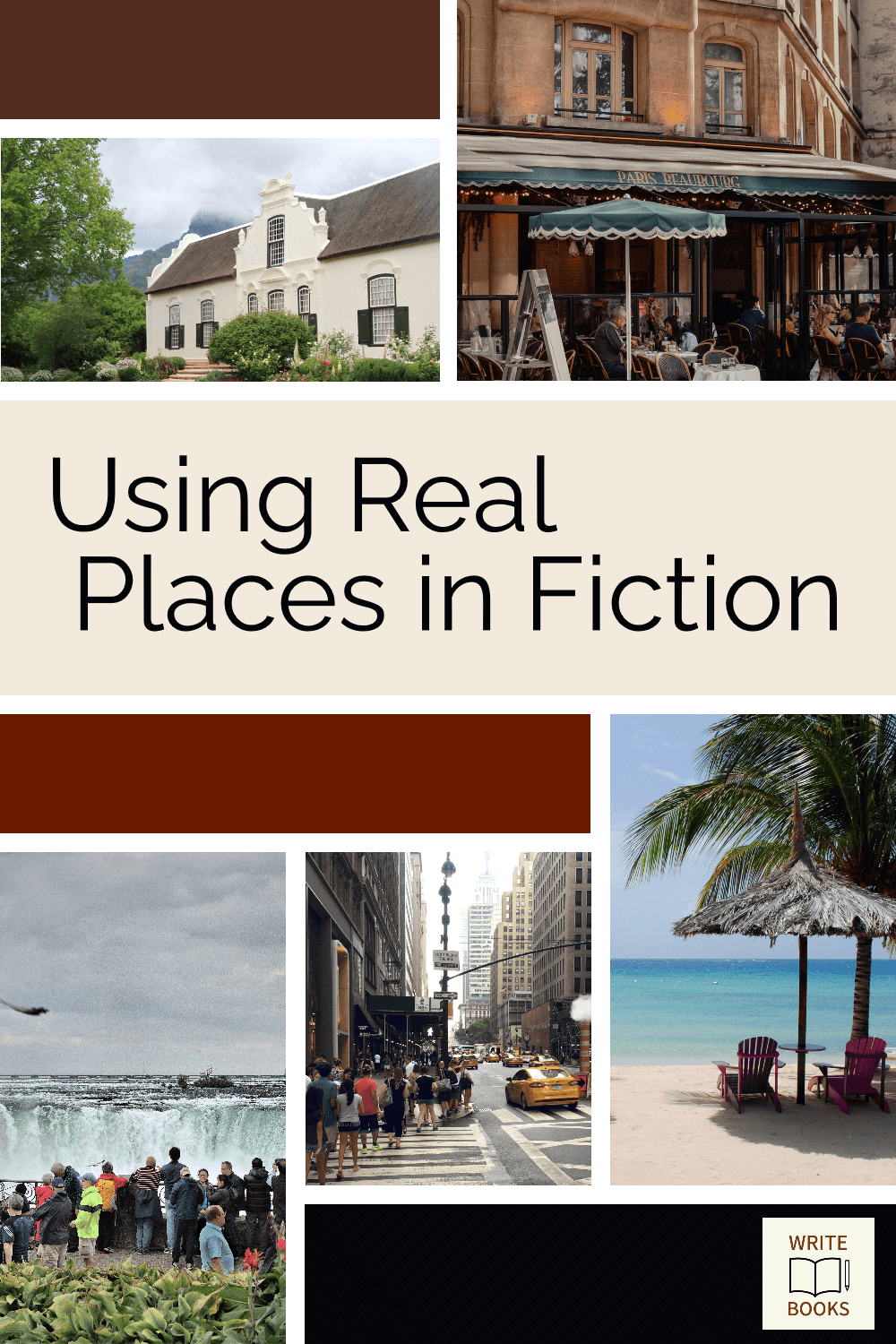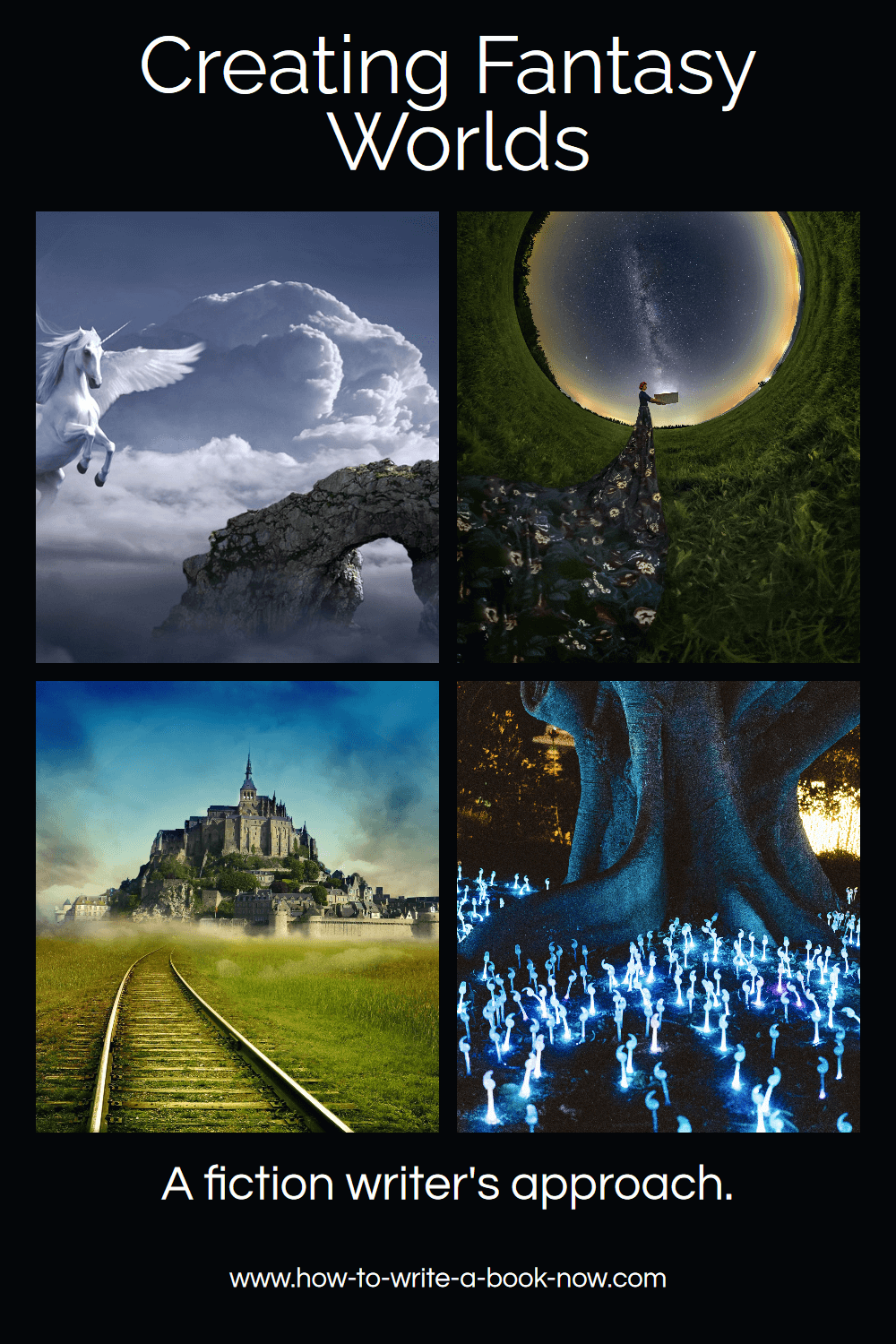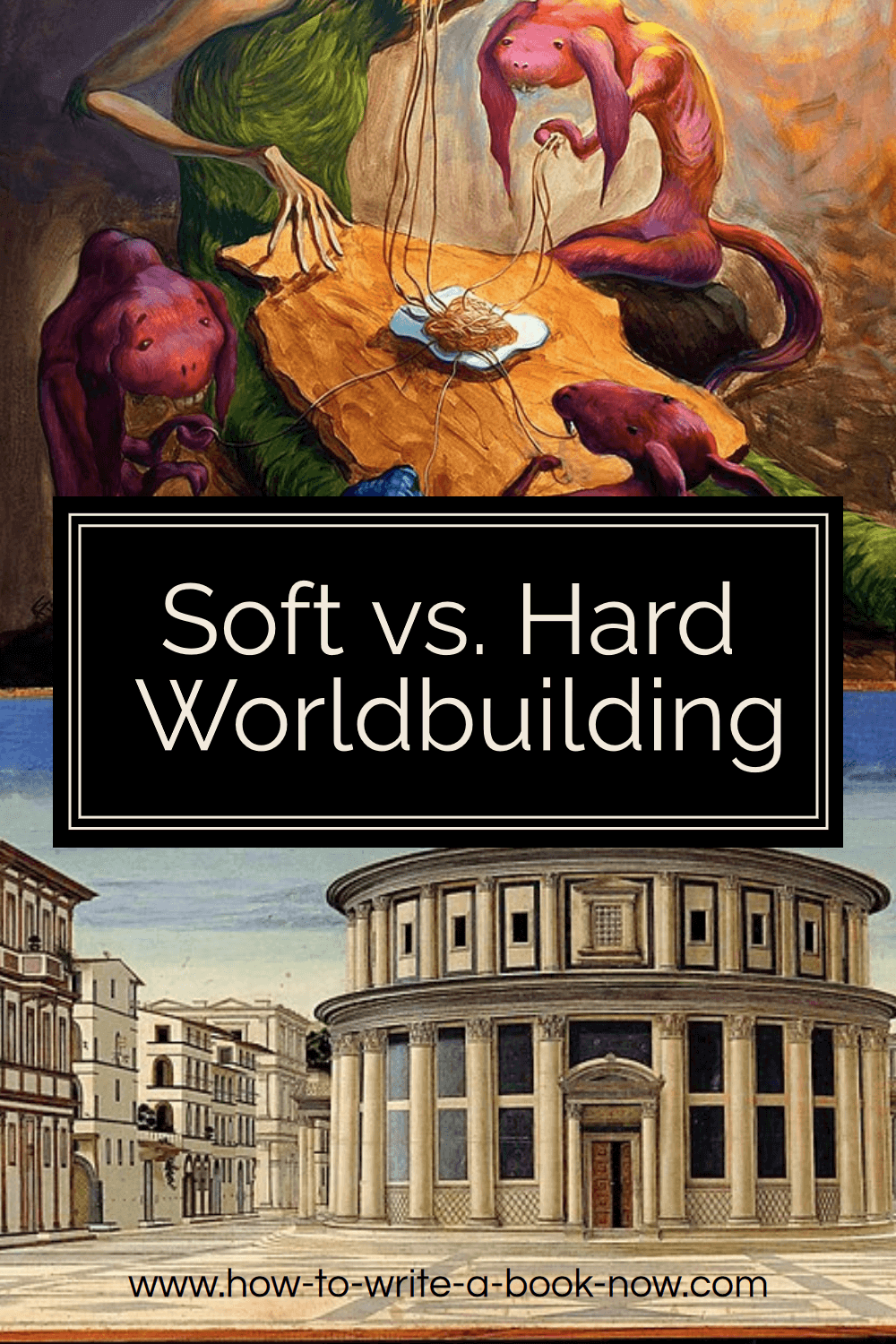Using Real Places in Fiction
By Glen C. Strathy
Most writers prefer using real places in fiction as the settings for events. Some will make up an entirely fictional world. Many will use a fictionalized version of the real world in which all the names are changed. And others will set stories in a world that is somewhere in between -- a combination of some real places, some fictionalized places, and some places that are made up. Often the genre you are writing in has a big influence over which type of setting you will use.
To help you decide where to set your story or novel, let's look at the advantages and disadvantages of using real places in fiction...
Using Real Places in Fiction Adds Plausibility and Authenticity
The biggest reason for using real places in fiction is for the sake of plausibility. Even though readers know a story is fictional, much of their enjoyment depends on how easy it is to imagine the story could be true. The characters motives, feelings, and actions need to be plausible. The action needs to be consistent with the laws of physics (even if the book is set in a fantasy world with different physical laws). Setting the story in real locations and describing those locations accurately and vividly makes a story seem more plausible. When readers feel that a story could be true, the events and the lessons the story conveys become more meaningful.
In certain genres, authentic depictions of real locations are especially important.
For instance, some readers have a passionate interest in parts of the world they have never been to. They may be fascinated by a famous city like Paris, Rome, New York, or Beijing -- or even with certain neighbourhoods and enclaves within famous cities. Reading a mainstream, contemporary novel set in such a location can be a lot of fun. Reading a thriller, romance, or suspense story set in distant parts of the world can be even more fun, for those who like such genres. Such stories give readers the vicarious experience of being in an exotic or romantic location, as if they were walking those streets themselves.
If you want to use real places in fiction in order to appeal to such readers, you must make the details of the setting accurate. Your readers may already know a lot about your chosen setting (or they may read more about it later), so you must get the details correct. Just as important, you want to describe the place in a way that feels authentic, that captures its unique atmosphere.
Other readers like to read stories about places they have lived or currently live, sometimes for the feeling of nostalgia. Accurate details that recreate the authentic feeling of a particular place and era add to the enjoyment of such stories.
Using real places is equally important in historical fiction, which people read as much to learn about history as for a good story. Readers of historical fiction want the vicarious experience of living in a historical era that fascinates them. They want novels that make the history come alive.
How to Find The Telling Details
Today, it's easier than ever to find out what different places around the world are like, even if you have never been to them. Google maps, for example can show you what nearly every building on every street in the world looks like, and a lot of places outside cities as well (and not just from overhead). You can see how people dress, the kind of vehicles they drive, and other aspects of their lifestyle.
Unfortunately, you can't learn everything about a place from pictures. Google maps will not tell you about all the sounds and smells you would experience in a particular spot. It won't tell you what the weather feels like, how the food tastes, how people behave, how they talk, or many other details that might help you create a vivid description for your reader.
It will always be better to set a story in a place you have visited yourself. Even better is a place you have lived in or grown up in, which is why many writers set their stories in their hometown or towns similar to the one they grew up in.
If you are fortunate to be able to travel, it's a good idea to take copious notes about every place you visit. Take your own photographs. Sample the local cuisine. Talk to locals about their home. Learn about the history and the culture. Assume that someday you will write a story about each place. Maybe you never will. But if you do, you will be glad to have all your notes.
Another source of information can be people you meet who have grown up in other parts of the world. Listen to how they talk, and what they say about the places they used to live.
If all else fails, libraries and the internet can be sources of nonfiction articles and books that will provide many details that can help you in using real places in fiction.
What About Naming Real Businesses?
Beginning writers often worry that using real places in fiction might get them into legal trouble if the names of those places are the intellectual property of certain companies. For instance, can you mention a specific fast food restaurant chain a character goes to? Can you mention a specific airline, hotel, or resort a character uses for her vacation? Can you have your character work for a real-world company or organization?
(Please note, I am not a lawyer and cannot give legal advice. What follows is what I believe to be true based on my reading on the subject.)
Most of the time, the answer is yes. You can use real business names in fiction. Writers do this all the time. Same with real products. In fact, using the names of real businesses is another way to add authenticity to your story, whether you are writing contemporary or historical fiction. For instance, it might say something about your character to have her shop at Wal-mart or Target rather than Saks or Holt-Renfrew. Making up a fictitious store and describing it may be a less efficient way to convey the same information.
Simply mentioning a company or its products does not trespass on its trademarks. If you were to start a business and give it the same name and logo as an established business, that would be a trespass because you would be confusing potential customers. The other business could claim you are trying to trick people into thinking your business is theirs in order to steal their customers. But putting the name of a real business or product in a novel is not a problem because you are not creating any such confusion.
Besides, common sense tells you that, if writers could not mention company and product names, no one could write a review or a news article about a company or its products. If anything, mentioning a company in a novel is giving the company free advertising. So no harm done.
That said, there is one thing you could do that might get you into trouble when using real businesses in fiction. And one easy solution...
Fictionalize Places You Wish to Portray in a Negative Light
Even though you are writing fiction, if you portray a real life business in a negative light, that might open you to a potential libel suit. For instance, if you were to describe a particular fast food chain as regularly breaking the law -- perhaps by violating health regulations or labour practices -- the company might have a reason to claim you are damaging their business by publishing lies (especially if you exaggerate to make the company the villain).
If crime is an important part of your story (for instance, if you are writing a thriller or mystery), it is usually best to invent a fictional business that has some traits in common with a real life business. Make the company so different that no one could think the fictional business is directly based on the real one. For instance, you could create a fictional fast food chain with a very different name, menu, theme, uniforms, etc. from the real one that originally inspired you.
Other Benefits of Fictionalizing
Sometimes using real places in fiction is unnecessary and creates problems.
For instance, when Sir Arthur Conan Doyle gave his character, Sherlock Holmes, the address of 221B Baker Street, London, he created decades of inconvenience for the bank that was located at that address. Many people found the Sherlock Holmes stories so believable they became convinced Sherlock Holmes was a real person. For decades, the bank received letters addressed to Mr. Holmes filled with requests for his help in finding lost items, people, etc. The bank actually had an employee whose job it was to write replies to these letters, informing the senders that Mr. Holmes was currently engaged in other matters and perhaps they should try their local police.
If you are writing about a character who lives in a well-known town or neighbourhood, you can avoid such problems by being vague about a character's address or making up a fictional address. Perhaps make their home architecturally similar to many other homes in that neighbourhood but give it a phony street name.
Fictionalizing real places also works in stories where the setting is less important than the character relationships. A great many romances and other stories take place in fictional Mid-West American towns or small villages in the UK. Writers of such stories often try to portray the general feel of the territory or culture, without naming a specific community within it.
This also works when you want to portray the dark side of a community (perhaps the community you grew up in). If you write a story about the embarrassing secrets (real or made up) of an actual community, you run the risk the inhabitants will object to your portrayal of them (or worse, sue you for libel). In such cases, it may be better to make up a fictional community and a set of characters that have similar issues but could never be mistaken for their real life counterparts.
If you are writing such a story, you may want to make your fictional town an amalgamation of several towns. This has the advantage of letting you change certain aspects of the town to better fit the story you want to tell. You can apply the same technique to smaller places as well. For instance, you might create a fictional university with traits drawn from several real universities in the same part of the world, or a fictional paper mill, etc.
Of course, even with a fictionalized setting, readers enjoy the inclusion of details that have a ring of authenticity. You may want to create a fictional history for your setting. Even if the history never appears in your novel, you may draw upon it to create specific details for your setting that are consistent with each other -- that have an inner logic to them.
Sometimes, readers will know you are using real places in fiction, even if you try to conceal them.
Bear in mind, some real life places are so distinct you would be hard pressed to fictionalize them. For instance, you can write a story in which characters visit a fictitious waterfall on the border of Canada and the US that is a traditionally popular destination for honeymoon couples, but the reader is going to know it's based on Niagara Falls.
In fact, it might not be worthwhile to fictionalize a place that is well-known and distinctive. Presumably the value of using it as a setting is because of its unique features and because it is famous. Why would you want to cancel out those values by fictionalizing it -- which would involve changing its name and altering its unique features? If you want to write about the seamy side of such a place, you still can, as long as your characters are clearly not identifiable.
Of course, you could invent a fictional place that is unique and special in other ways. But that leads us into another topic -- the creation of fictional worlds or "worldbuilding."
- Home
- Write a Novel
- Setting
- Real Settings






















